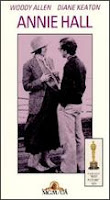
I started off with a quote so I thought I'd finish off with one. "It is not the strongest of the species that survive, nor the most intelligent, but the one most responsive to change"--Charles Darwin.
Things I liked about Learning 2.0:
- That you can do the course anywhere any time (I did most of mine at home).
- That the library has set aside 15 minutes out of it's busy schedule to do this course.
- All the help from Mylee and Ellen. Good on ya guys.
- The opportunity to learn about daunting I.T. subjects.
- A chance to keep abreast of subjects vital to our profession.
- Being given tools that help us to provide innovative services to our clients.
- It was really interesting and relevant as well.




























